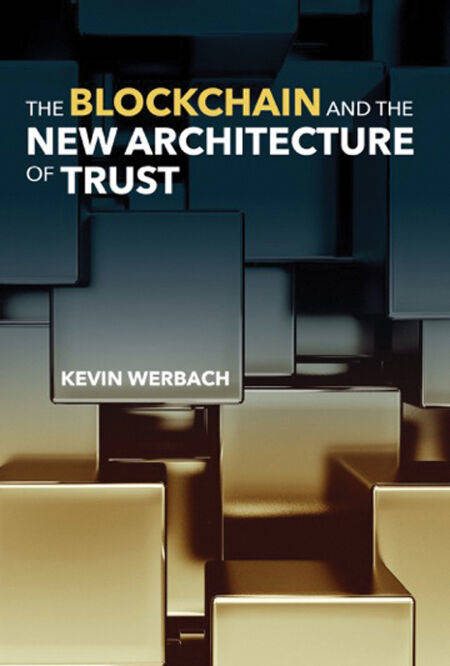
Bedankt voor het vertrouwen het afgelopen jaar! Om jou te bedanken bieden we GRATIS verzending (in België) aan op alles gedurende de hele maand januari.
- Afhalen na 1 uur in een winkel met voorraad
- In januari gratis thuislevering in België
- Ruim aanbod met 7 miljoen producten
Bedankt voor het vertrouwen het afgelopen jaar! Om jou te bedanken bieden we GRATIS verzending (in België) aan op alles gedurende de hele maand januari.
- Afhalen na 1 uur in een winkel met voorraad
- In januari gratis thuislevering in België
- Ruim aanbod met 7 miljoen producten
Zoeken
The Blockchain and the New Architecture of Trust E-BOOK
Kevin Werbach
€ 27,55
+ 27 punten
Uitvoering
Omschrijving
How the blockchain—a system built on foundations of mutual mistrust—can become trustworthy
The blockchain entered the world on January 3, 2009, introducing an innovative new trust architecture: an environment in which users trust a system—for example, a shared ledger of information—without necessarily trusting any of its components. The cryptocurrency Bitcoin is the most famous implementation of the blockchain, but hundreds of other companies have been founded and billions of dollars have been invested in similar applications since Bitcoin’s launch. Some see the blockchain as offering more opportunities for criminal behavior than benefits to society. In this book, Kevin Werbach shows how a technology resting on foundations of mutual mistrust can become trustworthy.
The blockchain, built on open software and decentralized foundations that allow anyone to participate, seems like a threat to any form of regulation. In fact, Werbach argues, law and the blockchain need each other. Blockchain systems that ignore law and governance are likely to fail, or to become outlaw technologies irrelevant to the mainstream economy. That, Werbach cautions, would be a tragic waste of potential. If, however, we recognize the blockchain as a kind of legal technology that shapes behavior in new ways, it can be harnessed to create tremendous business and social value.
The blockchain entered the world on January 3, 2009, introducing an innovative new trust architecture: an environment in which users trust a system—for example, a shared ledger of information—without necessarily trusting any of its components. The cryptocurrency Bitcoin is the most famous implementation of the blockchain, but hundreds of other companies have been founded and billions of dollars have been invested in similar applications since Bitcoin’s launch. Some see the blockchain as offering more opportunities for criminal behavior than benefits to society. In this book, Kevin Werbach shows how a technology resting on foundations of mutual mistrust can become trustworthy.
The blockchain, built on open software and decentralized foundations that allow anyone to participate, seems like a threat to any form of regulation. In fact, Werbach argues, law and the blockchain need each other. Blockchain systems that ignore law and governance are likely to fail, or to become outlaw technologies irrelevant to the mainstream economy. That, Werbach cautions, would be a tragic waste of potential. If, however, we recognize the blockchain as a kind of legal technology that shapes behavior in new ways, it can be harnessed to create tremendous business and social value.
Specificaties
Betrokkenen
- Auteur(s):
- Uitgeverij:
Inhoud
- Aantal bladzijden:
- 344
- Taal:
- Engels
- Reeks:
Eigenschappen
- Productcode (EAN):
- 9780262349789
- Verschijningsdatum:
- 10/12/2018
- Uitvoering:
- E-book
- Beveiligd met:
- Adobe DRM
- Formaat:
- ePub

Alleen bij Standaard Boekhandel
+ 27 punten op je klantenkaart van Standaard Boekhandel
Beoordelingen
We publiceren alleen reviews die voldoen aan de voorwaarden voor reviews. Bekijk onze voorwaarden voor reviews.









